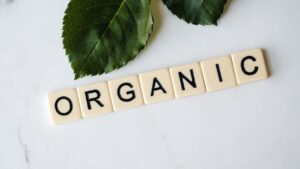Certified Organic?
While at a dinner with friends at a very nice restaurant that had claims on the menu of locally sourced food products, we learned that some of the beef products were sources from Australia. Then the discussion turned to what do the labels and claims actually mean. Food labels and claims can be misleading and confusing. I hope this article helps people understand food labels and make the best choice for the food they consume.
The USDA National Organic Standards Board defines the term Organic as:
“Organic” is a labeling term that denotes products produced under the authority of the Organic Foods Production Act. The principal guidelines for organic production are to use materials and practices that enhance the ecological balance of natural systems and that integrate the parts of the farming system into an ecological whole.
USDA’s National Organic Program regulates labeling requirements for organic agricultural products. Organic labels can be found on produce, dairy, meat, processed foods, condiments, beverages, clothes, and beauty products. Food products labeled “organic” must contain at least 95% organic ingredients with no synthetic growth hormones, antibiotics, pesticides, biotechnology, synthetic ingredients, or irradiation used in production or processing (exceptions are NOP’s approved chemicals).
Products that contain at least 70 percent organic ingredients and are produced without synthetic methods are labeled “made with organic ingredients,” though they cannot use the USDA organic seal on their packaging.
Organic agricultural production still uses pesticides and herbicides that USDA’s organic certification standards have okayed. Just because something is certified “organic” does not mean that no pesticides or herbicides were used. It simply means that the ones applied met the USDA’s production standards for the term. Link at bottom of approved organic chemicals.
Another myth is certified “Organic” products are healthier than conventional products. Organic food relates back to agricultural production, not a specific nutrition or health-related guideline.
Foods can still be organic even if they’re not labeled as such. Since the standard requires third-party verification, there’s a cost associated with the certification process. Food companies must consistently provide back-up documentation to use the “USDA Organic” seal. That makes it less desirable to smaller or newer brands that use organic production practices, but don’t want to incur the costs of verification.
Sources
https://www.usda.gov/media/blog/2012/03/22/organic-101-what-usda-organic-label-means
https://www.ams.usda.gov/services/organic-certification/organic-basics
https://www.ecfr.gov/current/title-7/subtitle-B/chapter-I/subchapter-M/part-205/subpart-G



